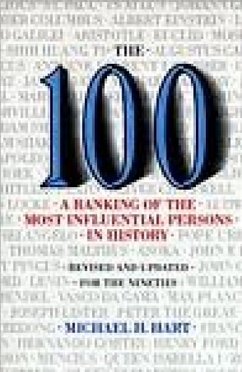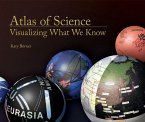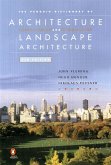In 1978, when Michael Hart&rsquo s controversial book The 100 was first published, critics objected that Hart had the nerve not only to select who he thought were the most influential people in history, but also to rank them according to their importance. Needless to say, the critics were wrong, and to date more than 60,000 copies of the book have been sold. Hart believed that in the intervening years the influence of some of his original selections had grown or lessened and that new names loomed large on the world stage. Thus, the publications of this revised and updated edition of The 100.
As before, Hart's yardstick is influence: not the greatest people, but the most influential, the people who swayed the destinies of millions of human beings, determined the rise and fall of civilizations, changed the course of history. With incisive biographies, Hart describes their careers and contributions. Explaining his ratings, he presents a new perspective on history, gathering together the vital facts about the world's greatest religious and political leaders, inventors, writers, philosophers, explorers, artists, and innovators&mdash from Asoka to Zoroaster. Most of the biographies are accompanied by photographs or sketches. Hart's selections may be surprising to some. Neither Jesus nor Marx, but Muhammad, is designated as the most influential person in human history. The writer's arguments may challenge and perhaps convince readers, but whether or not they agree with him, his manner of ranking is both informative and entertaining. The 100, revised and updated, is truly a monumental work. It promises to be just as controversial, just as thought-provoking, and just as successful as its predecessor&mdash a perfect addition to any history or philosophy reference section.
As before, Hart's yardstick is influence: not the greatest people, but the most influential, the people who swayed the destinies of millions of human beings, determined the rise and fall of civilizations, changed the course of history. With incisive biographies, Hart describes their careers and contributions. Explaining his ratings, he presents a new perspective on history, gathering together the vital facts about the world's greatest religious and political leaders, inventors, writers, philosophers, explorers, artists, and innovators&mdash from Asoka to Zoroaster. Most of the biographies are accompanied by photographs or sketches. Hart's selections may be surprising to some. Neither Jesus nor Marx, but Muhammad, is designated as the most influential person in human history. The writer's arguments may challenge and perhaps convince readers, but whether or not they agree with him, his manner of ranking is both informative and entertaining. The 100, revised and updated, is truly a monumental work. It promises to be just as controversial, just as thought-provoking, and just as successful as its predecessor&mdash a perfect addition to any history or philosophy reference section.








